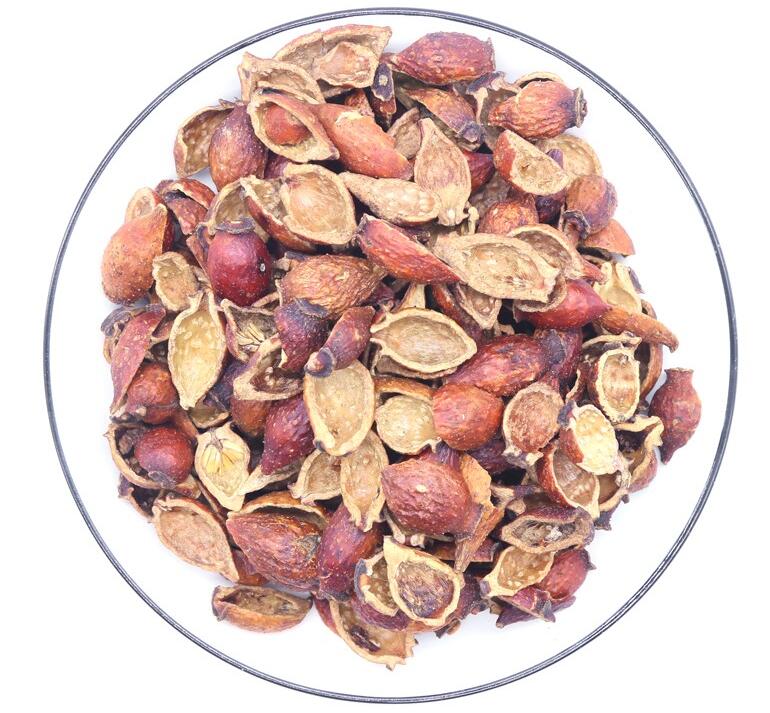
Cherokee Rose Fruit(Jin Yin Zi) , known scientifically as Rosa laevigata Michx. or Rosa rugosa Thunb.,
is a valued herbal medicine in traditional Chinese medicine (TCM). This herb is derived from the fruits and seeds of certain species of rose plants, particularly those belonging to the Rosaceae family. The bright orange-to-red or golden yellow color of its fruits gives it a distinctive appearance similar to cherries, hence the common name "Golden Cherry."
In TCM, Jin Ying Zi is reputed for its efficacy in treating a wide range of ailments. It is believed to have astringent properties, which means it can help in tightening tissues and reducing discharge from the body. Traditional uses include managing symptoms like diarrhea, excessive menstrual bleeding, and frequent urination. Furthermore, Jin Ying Zi is said to benefit the kidneys and is sometimes used to address kidney-related issues such as nocturnal emissions and impotence.
The active compounds in Jin Ying Zi, which may include flavonoids and other organic acids, are thought to contribute to its medicinal effects. It is also rich in vitamins and trace minerals that support general health and wellbeing.
Typically, Jin Ying Zi is prepared as a decoction by boiling the dried fruit and seed in water, but it can also be found in pill or powder form in traditional Chinese pharmacies. As with any herbal remedy, proper dosage and usage should be discussed with a knowledgeable herbalist or practitioner of TCM to avoid potential side effects and ensure safety, especially since not all natural remedies are suitable for everyone.
Modern research is ongoing to validate the traditional uses of Jin Ying Zi and understand its pharmacological mechanisms more comprehensively. As the interest in complementary and alternative medicine continues to grow globally, herbs like Jin Ying Zi are attracting increasing attention for their potential health benefits.






